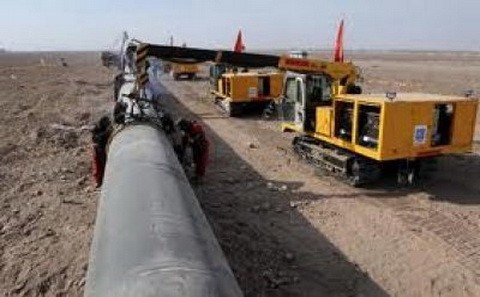Special topics
 The deafening silence from the authorities contrasts sharply with the uneasy calm that prevails in the nation’s petroleum downstream sector over the sale of Shell Ghana Vitol Group and other foreign investors.
The deafening silence from the authorities contrasts sharply with the uneasy calm that prevails in the nation’s petroleum downstream sector over the sale of Shell Ghana Vitol Group and other foreign investors.
Tongues are wagging over the purported sale of shares in Shell to oil trader and downstream operator Vitol, and the operators in the downstream sector are up in arms. They are not allowing the matter to rest.
The Association of Oil Marketing Companies of Ghana has written to the industry regulator, National Petroleum Authority (NPA), in a letter dated 15th July, 2013 signed by Mr. Kwaku Agyemang-Doh, seeking though the laws donor allow such explanation as to why the deal received regulatory approval even-though the laws do not allow such a transaction.
Their bone of contention is that the sale is very wrong. It offends Ghanaian law, and has the potential of wiping out the businesses of all local petrol retailers. And more importantly, it defeats the purpose of the local content policy.
Vitol is already a downstream player in the downstream petroleum market. By giving it direct access to all tilling stations and customers in Ghana, it can undercut its competitors through predatory pricing to eventually gain monopoly status and drive up prices.
But the puzzle yet to be resolved is how the sale got the blessings of the authorities because it contravenes the National Petroleum Authority Act.
B&FT is reliably informed that under the previous Energy Minister, Dr. Oteng-Adjei, the transaction was stopped because it failed to meet the NPA’s requirement of 50 percent Ghanaian ownership. The question therefore is: what are the changes in circumstance that have allowed the transaction to go through now?
Regarding the shareholding structure of the new business, which was birthed as a result of the deal, Vitol has 40 percent: Helios, a Nigerian private investment fund, owns 40 percent; while Shell International retains 20 percent shareholding.
However, the NPA’s Public Notice, NPA 002, requires all oil marketing companies to be 50 percent Ghanaian- owned. An exemption was made to shell Ghana before the act came into being, but Vivo Energy in the current deal is a new entrant into the market and as such is required to be 50 percent Ghanaian-owned.
On the contrary, under the current ownership structure, Vivo Energy, the new entity that has been created, is more than 80 percent foreign-owned. This makes it clearly ineligible to operate in the downstream sector.
Source: B&FT
Get the latest news and updates on Ghana’s oil and gas value chain by following us Reporting Oil and Gas on twitter @oilgasghana and like our facebook page and get at us on Google+. Subscribe to our group to get updates.